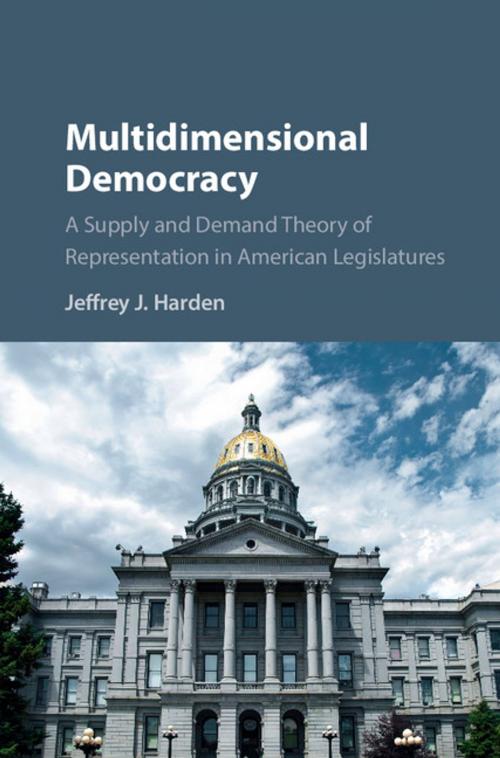Multidimensional Democracy
A Supply and Demand Theory of Representation in American Legislatures
Nonfiction, Reference & Language, Law, Social & Cultural Studies, Political Science, Government| Author: | Jeffrey J. Harden | ISBN: | 9781316461587 |
| Publisher: | Cambridge University Press | Publication: | November 26, 2015 |
| Imprint: | Cambridge University Press | Language: | English |
| Author: | Jeffrey J. Harden |
| ISBN: | 9781316461587 |
| Publisher: | Cambridge University Press |
| Publication: | November 26, 2015 |
| Imprint: | Cambridge University Press |
| Language: | English |
Multidimensional Democracy examines political representation from the supply (legislator) and demand (constituent) perspectives. Focusing on four dimensions - policy, service, allocation, and descriptive representation - it documents systematic variation in what people want from legislators and what legislators choose to emphasize while in office. It has important implications for the study of representation, as well as normative questions about political inequality in America. The demand-side results show that constituents who are economically advantaged tend to prefer policy-based representation while the disadvantaged place relatively more importance in constituent service and/or allocation. Suggestive results from the legislator data complement this finding; legislators in wealthy, white districts tend to focus more on policy while those representing economically disadvantaged and racially diverse districts may place more emphasis on service and/or allocation. A likely consequence is that the policy choices made by representatives reflect the policy preferences of the economically advantaged because policy representation is what those citizens want.
Multidimensional Democracy examines political representation from the supply (legislator) and demand (constituent) perspectives. Focusing on four dimensions - policy, service, allocation, and descriptive representation - it documents systematic variation in what people want from legislators and what legislators choose to emphasize while in office. It has important implications for the study of representation, as well as normative questions about political inequality in America. The demand-side results show that constituents who are economically advantaged tend to prefer policy-based representation while the disadvantaged place relatively more importance in constituent service and/or allocation. Suggestive results from the legislator data complement this finding; legislators in wealthy, white districts tend to focus more on policy while those representing economically disadvantaged and racially diverse districts may place more emphasis on service and/or allocation. A likely consequence is that the policy choices made by representatives reflect the policy preferences of the economically advantaged because policy representation is what those citizens want.















